Get Poison Ivy Removal in Philadelphia, PA
Poison ivy removal services for Philadelphia-area property owners address hazardous plant overgrowth on lawns, fences, and wooded areas, helping prevent skin irritation and property damage.
Poison ivy can pose a serious concern for property owners in Philadelphia, PA, especially for those managing outdoor spaces like yards, gardens, or recreational areas. Removing this plant safely and effectively is important to prevent skin irritation, protect children and pets, and maintain the overall appearance of a property. Homeowners and property managers often explore options for professional removal to ensure the job is handled thoroughly and safely, particularly when dealing with larger infestations or hard-to-reach areas.
To make informed decisions, many consider comparing local contractors who specialize in poison ivy removal. These service providers understand the specific challenges posed by the Philadelphia environment and can offer tailored solutions for different property types. Continuing to explore available options can help property owners identify experienced professionals capable of addressing their needs, ensuring a clean, safe outdoor space to enjoy.
- Poison Ivy Removal - needed when invasive plants threaten to spread across yards and landscape features in neighborhoods like Fishtown or Manayunk.
- Poison Ivy Removal - required when plants grow along fences, driveways, or near walkways, creating safety hazards for residents in Philadelphia.
- Poison Ivy Removal - necessary when poison ivy encroaches on playgrounds, gardens, or outdoor recreational areas in local communities.
- Poison Ivy Removal - sought after when overgrown plants interfere with property maintenance or landscaping projects in nearby suburbs.
- Poison Ivy Removal - essential when plants pose health risks to children, pets, or outdoor workers in densely wooded or landscaped areas.
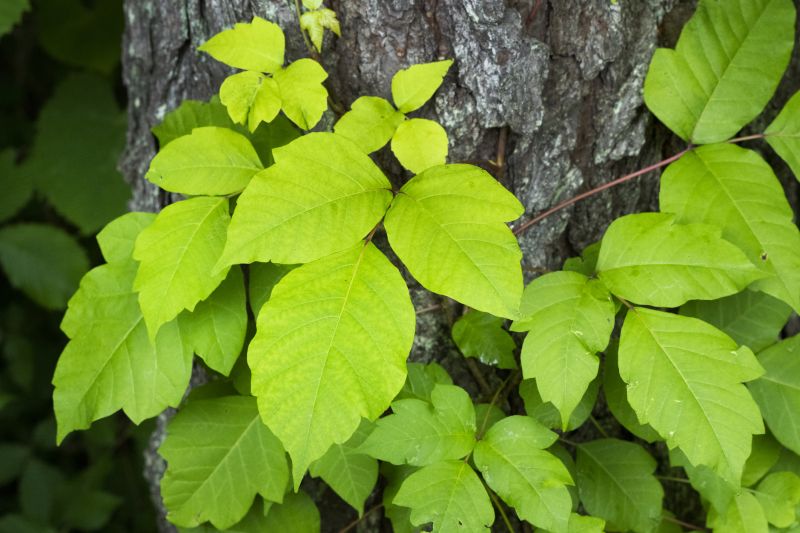
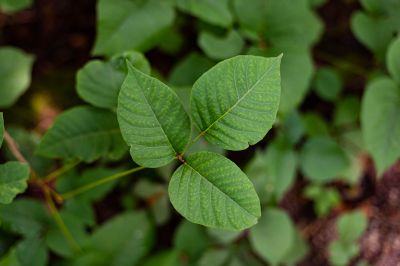
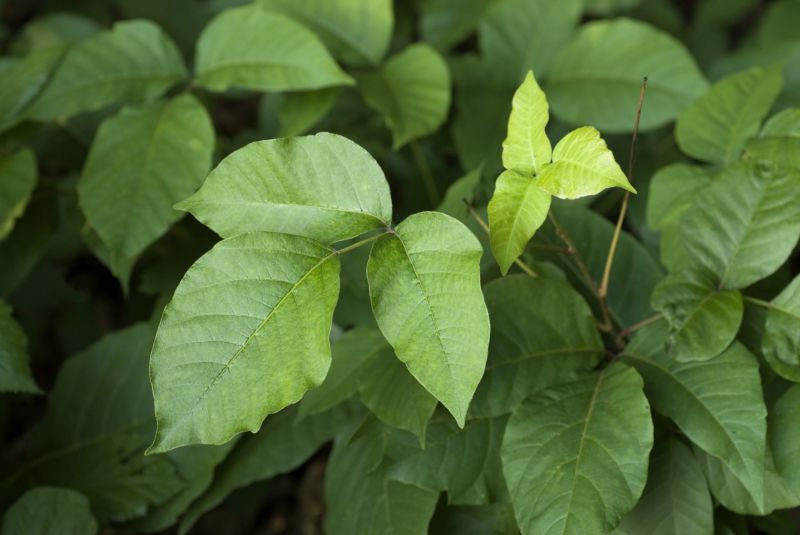
Poison ivy removal services involve identifying and safely eliminating this invasive plant from residential and commercial properties. Skilled service providers use specialized techniques to carefully remove poison ivy vines, roots, and surrounding growth to prevent regrowth and reduce the risk of skin irritation or allergic reactions. The process often includes thorough inspection of the affected areas, targeted removal methods, and sometimes the application of herbicides to ensure complete eradication. Property owners can rely on these professionals to handle the work efficiently, minimizing damage to surrounding plants and landscaping.
Poison ivy is known for causing skin rashes and allergic reactions, making its presence a common concern for homeowners and property managers. It can grow along fences, in wooded areas, or within overgrown yards, often hidden among other plants. Removing poison ivy helps prevent accidental contact, especially in outdoor spaces used for recreation or gardening. Additionally, eliminating the plant can protect children, pets, and visitors from potential health issues. In some cases, removal is necessary to ensure safe access to outdoor areas or to comply with local regulations regarding invasive species.
This service is frequently requested for a variety of property types, including single-family homes, apartment complexes, commercial properties, and public parks. Residential properties with overgrown yards or wooded areas often need poison ivy removal to maintain safety and aesthetics. Commercial sites such as office parks or retail spaces may also require professional removal to ensure safe environments for employees and visitors. Public spaces, playgrounds, and community parks benefit from regular poison ivy management to reduce hazards and promote outdoor enjoyment for everyone.
Homeowners and property owners should consider poison ivy removal services when they notice the plant spreading into lawns, along fences, or near walkways. Signs of trouble include vine-covered trees or shrubs, or patches of plants with characteristic three-leaf clusters. Prompt removal can prevent the plant from spreading further and reduce the risk of contact. Local service providers can assess the situation, recommend appropriate removal strategies, and help maintain safe, attractive outdoor spaces. Contacting experienced professionals ensures that the job is handled safely and effectively, giving property owners peace of mind.
The overview below groups typical Poison Ivy Removal projects into broad ranges so you can see how smaller, mid-sized, and larger jobs often compare in Philadelphia, PA.
In many markets, a large share of routine jobs stays in the lower and middle ranges, while only a smaller percentage of projects moves into the highest bands when the work is more complex or site conditions are harder than average.
Smaller Jobs - Many Poison Ivy removal projects in the Philadelphia area fall within the range of $250-$600, covering routine or minor infestations on small to medium-sized properties. These jobs typically involve localized treatment and quick clearance. Larger, more complex projects can exceed this range, especially if multiple areas or extensive root removal are required.
Medium-Sized Projects - For moderate infestations affecting larger sections of a yard or multiple areas, local contractors often charge between $600 and $1,500. Many projects in this range involve comprehensive removal and some site cleanup, with fewer jobs reaching the higher end of this spectrum.
Large or Extensive Jobs - Larger, more complex Poison Ivy removal projects, such as those involving multiple sites or difficult-to-access areas, can cost from $1,500 to $3,000 or more. These projects often require specialized equipment and multiple treatment sessions, which are less common but necessary for severe infestations.
Full Property Removal or Replanting - Complete removal of Poison Ivy across an entire property, including landscaping and replanting, can reach $3,000+ depending on size and complexity. Such projects are less frequent and typically involve significant planning and effort from local service providers.
Actual totals will depend on details like access to the work area, the scope of the project, and the materials selected, so use these as general starting points rather than exact figures.
Brush Clearing and Vegetation Management - local contractors can handle clearing overgrown brush and managing dense plant growth, similar to removing Poison Ivy from difficult outdoor areas.
Tree Trimming and Pruning - skilled service providers often perform trimming and pruning that requires careful planning and the use of specialized tools, akin to removing hazardous plants like Poison Ivy.
Landscaping and Yard Cleanup - professionals who perform landscaping and debris removal are experienced in managing plant-related projects that involve identifying and removing unwanted vegetation.
Fence Line Maintenance - maintaining and clearing fence lines involves similar techniques for removing invasive or hazardous plants from property boundaries.
Garden Bed Preparation - preparing garden beds sometimes requires clearing invasive plants and roots, paralleling the skills needed for Poison Ivy removal.
Storm Damage Cleanup - cleanup crews experienced in storm damage often remove fallen branches and plant debris, which involves similar planning and safety considerations as Poison Ivy removal.
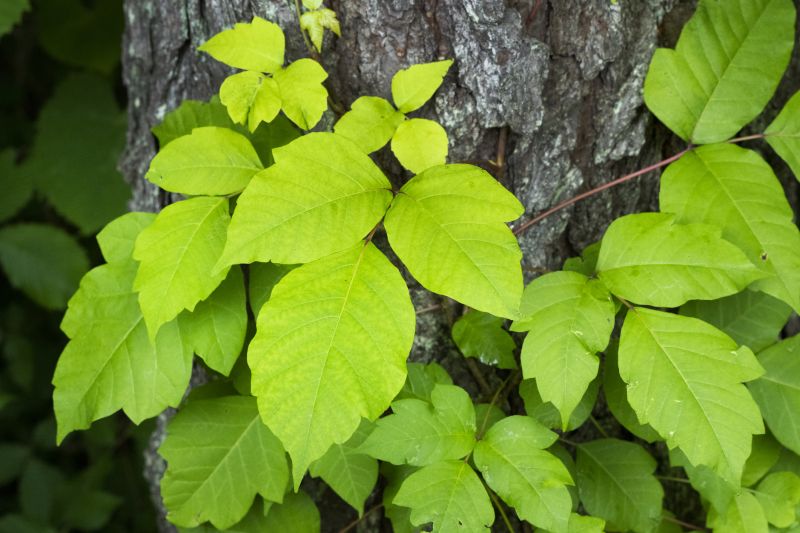
When comparing service providers for poison ivy removal, it’s important to consider their experience with similar projects. Homeowners should look for local contractors who have a proven track record of handling outdoor plant removal and landscape management, particularly in environments similar to their own. Asking about the number of completed jobs involving poison ivy or related plants can help gauge familiarity with the challenges and best practices specific to this type of work. An experienced provider will understand how to identify poison ivy safely and effectively, reducing the risk of damage to surrounding vegetation and ensuring thorough removal.
Clear, written expectations are essential when evaluating potential service providers. Homeowners should seek detailed descriptions of the scope of work, including how the poison ivy will be removed, what areas will be treated, and any follow-up procedures. A reputable contractor will provide a transparent outline of their approach, ensuring that both parties are aligned on what will be done. This clarity helps prevent misunderstandings and provides a basis for assessing whether the service provider’s methods meet the homeowner’s needs.
Reputable references and effective communication are key factors in selecting a reliable poison ivy removal service. Homeowners can ask for references from previous clients who had similar work done to confirm the contractor’s professionalism and quality of service. Additionally, good communication-such as responsiveness to questions and clarity in explanations-indicates a contractor’s dedication to customer service. Since the site introduces homeowners to local options rather than performing the work directly, it’s important to contact and discuss expectations directly with the chosen service providers to ensure they are reputable and capable of delivering the desired results.
Property owners in Philadelphia, PA use Poison Ivy Removal services for practical projects around their homes and businesses. This guide focuses on everyday jobs and straightforward project options.
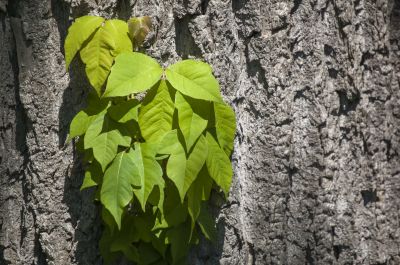
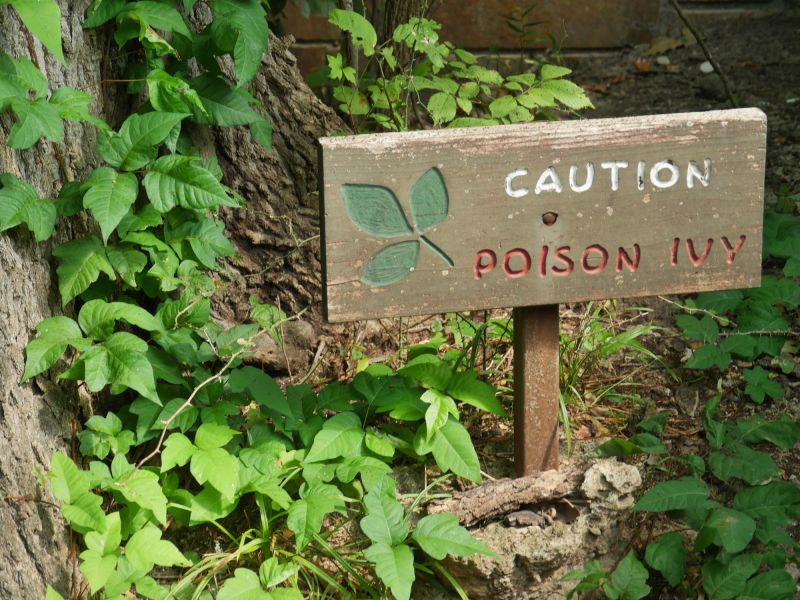
Poison ivy can quickly become a concern for property owners in Philadelphia, PA, especially when it starts to spread across yards, fences, or along walkways. Homeowners and landowners often seek professional removal services to prevent the plant from causing skin irritation or damaging landscaping. Local contractors are equipped to safely identify and remove poison ivy, helping to maintain a safe and attractive outdoor space for families, pets, and visitors.
In many cases, property owners might notice poison ivy growing in hard-to-reach areas such as along property lines, near sheds, or on steep slopes. Overgrown patches can also pose a risk of accidental contact during outdoor activities. Service providers in the area can handle these situations efficiently, offering expert removal to help keep outdoor environments safe and free from the nuisance of invasive plants.
What are the signs of poison ivy exposure? Common signs include itchy, red rash, swelling, and blistering where the skin has come into contact with the plant.
How do local contractors remove poison ivy safely? They typically use specialized tools and treatments to carefully eliminate the plant while minimizing risk to surrounding areas.
Can poison ivy removal be done on any property type? Yes, experienced service providers can handle removal on residential yards, commercial properties, and public spaces.
What methods do pros use to ensure complete poison ivy removal? They often employ manual removal, herbicide application, or a combination of techniques to effectively eliminate the plant.
Is it necessary to hire a professional for poison ivy removal? While some may attempt removal themselves, hiring local contractors can help ensure the job is done safely and thoroughly.
Enhance curb appeal - Removing poison ivy can improve the appearance of a lawn or garden area, making outdoor spaces more inviting.
Protect family and pets - Clearing poison ivy from yard paths and play areas helps prevent skin irritation and allergic reactions.
Maintain landscape health - Eliminating poison ivy allows native plants and grass to grow more freely, supporting a healthier yard.
Prepare for outdoor projects - Clearing poison ivy before installing decks, patios, or fencing ensures a safe and clean work area.

If you are thinking about Poison Ivy Removal for a property in Philadelphia, PA, this guide is meant to help you understand the work, the typical project types, and how different options might fit your plans.
When you are ready, you can use the quote form on this page to share a few details about your project. From there, local pros can review the basics and respond with options that match what you have in mind.



